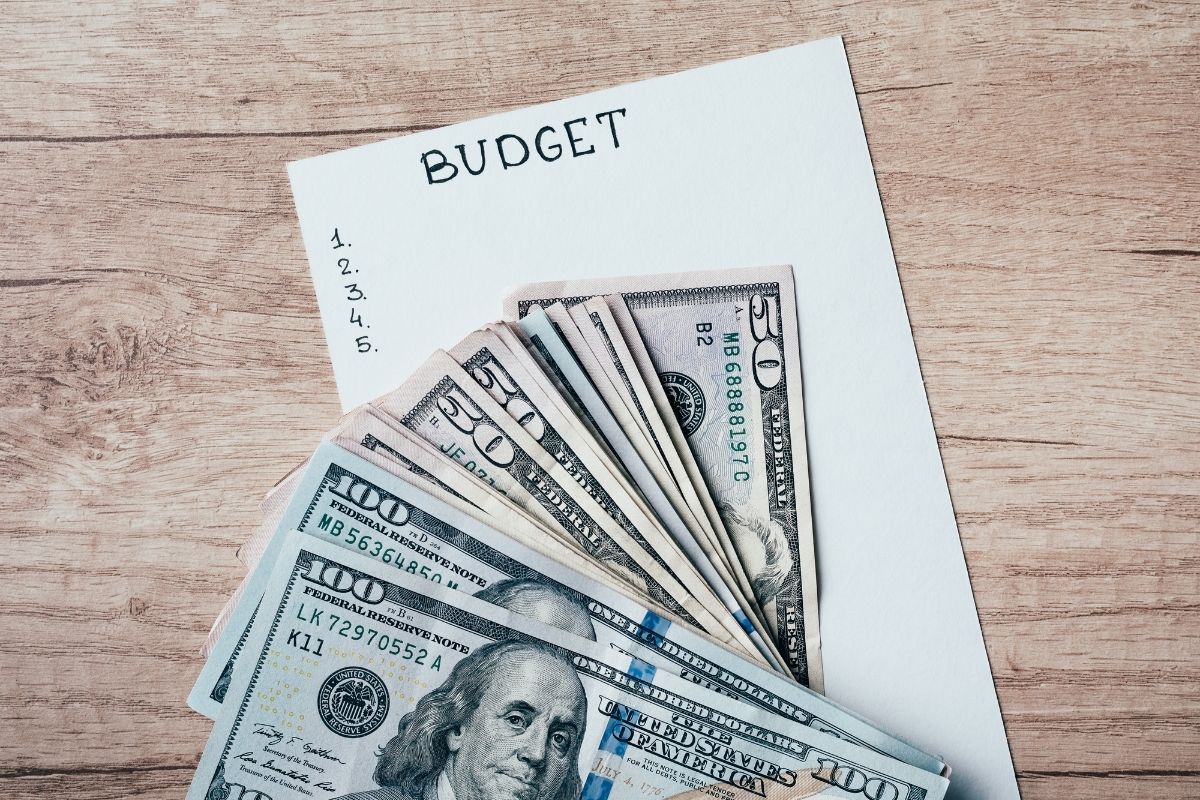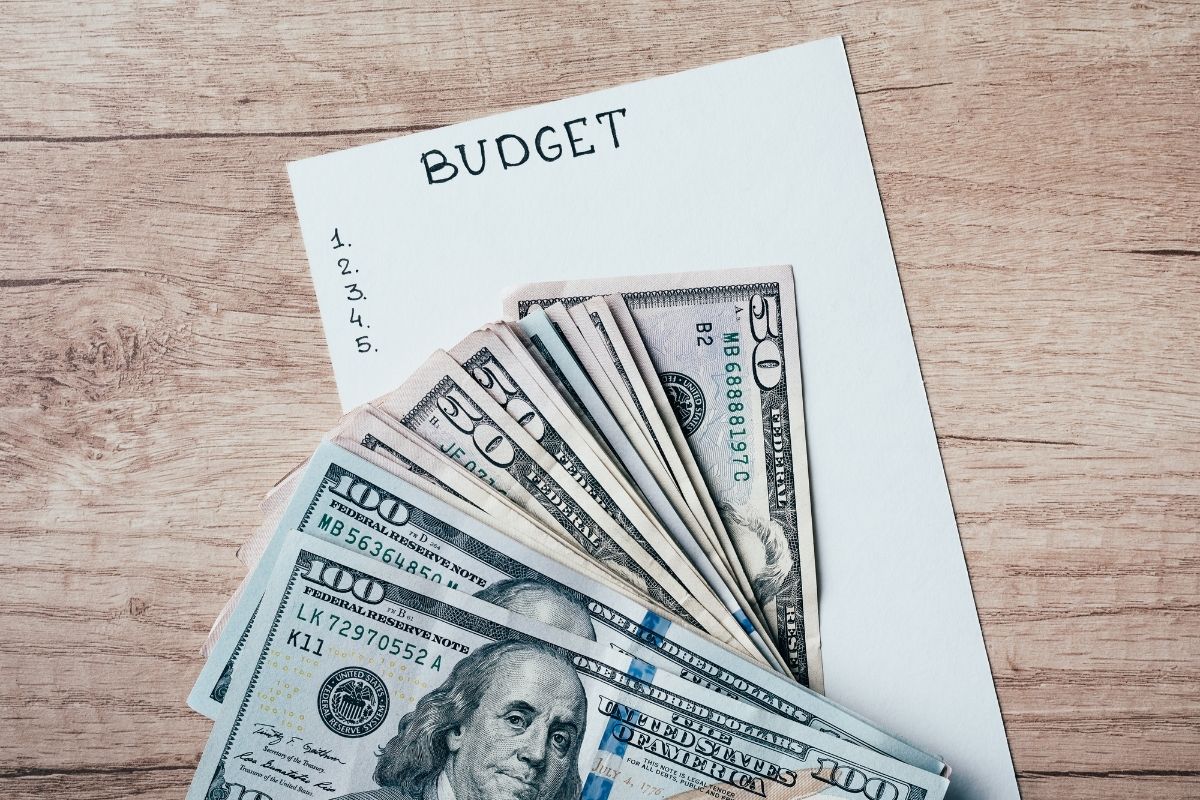Living on your own can be a scary thought and the monthly costs can add up. It’s not just rent you need to think about, but working out if it might be an option for you is easier than you may think.

There are plenty of ways to save money and live independently without having to rely on other people, and this article takes you through some tips on saving such as budgeting and using a credit card wisely, as well as highlights all the costs you need to think about when living on your own.
This should help you work out if you can live independently, so let’s jump right in.
Salary And Budgeting
First things first: budgeting. This is probably one of the most important steps when thinking about how to work out if you can afford to live on your own.
It’s not just about saving up enough money to pay rent or mortgage payments but also includes paying bills and expenses like utilities and food.
If you have no idea where to start with budgeting, then many free online tools will show you how much you spend each month and what you could cut back on.
For example, some websites have tools that show exactly how much you spend every day, including all of your recurring transactions such as utility bills, credit cards, and subscriptions.
You should also consider whether you want to be self-sufficient financially. If you’re happy to receive financial support from family members or friends, then you won’t need to worry about budgeting just as much.
However, if you’d prefer to be more independent, then you’ll need to make sure you’ve got an emergency fund set aside.
Emergency funds are essential because they allow you to cover unexpected costs. These include medical emergencies, car repairs, home repairs, and even replacing broken appliances.
The best way to build up an emergency fund is by putting away 10% of your income into savings. So if you earn £500 per week, then you should put away £50 per week.
It doesn’t matter if you decide to use a bank account or a high-interest savings account, as long as you keep adding to it regularly.
Once you’ve saved around six months’ worth of your weekly income, you’ll be able to relax knowing that you’ve got a safety net ready to catch you if anything goes wrong.
However, even if you budget, the most important thing to consider is your salary when working out if you can live on your own.
You will need to compare your salary, alongside any savings, to the expenses we are going to list in the rest of this article, and this will give you an idea of whether you will be able to live on your own.
Rent Vs Mortgage Payments
You need to first decide whether you can afford to pay rent or buy a house outright. If you choose to rent, then you’re essentially renting someone else’s property.
You won’t have any control over the area, and you won’t be able to decorate or redecorate as you please.
This is suited for those who do not have enough savings to put a downpayment on a house, but it isn’t ideal if you’re looking to invest in a forever home.
However, if you do decide to purchase a property, then this comes with a cost.
You will need to have saved up enough money to make a downpayment, as well as have a good enough credit score to be able to secure and pay off a mortgage.
The amount you pay monthly towards the mortgage will depend on the value of the property and the interest rate charged by the lender. You’ll also need to factor in maintenance costs, which can add up quickly.
However, unlike with renting, when you have paid the mortgage off, the house is yours.
So while buying a property may seem expensive up front, it’s likely to earn you money in the long run if you are in a good enough financial position in the first place.
Utilities
Whether you are renting or buying, you will be hit with your monthly bills for utilities, and these can add up quickly.
Heat
Renters should know what kind of heating system is used in their apartment before signing a lease. Heat costs vary by the type of heating used. For example, electric heaters tend to be cheaper than gas heaters.
But there are other factors to take into consideration, such as how often the heater needs to be turned on.
If you’re going to be paying rent, then you might want to find out how much you’ll be spending on heating.
It could be tempting to turn the thermostat down during winter so that you don’t spend too much on heating. However, this can lead to cold rooms and damp walls.
Water
When you move into a rental property, you’ll need to check whether the water supply is connected to the mains. Some landlords charge extra for this service, but some do not.
If you plan to stay in the property for longer than one year, it’s important to check whether the landlord has extended the water connection.
Electricity
The electricity bill for renters varies depending on where they live. In some areas, renters are required to pay a fixed fee each month regardless of usage. Other places charge based on the number of hours used.
In either case, it’s important to check your energy provider’s website before you sign a contract.
Gas
Gas prices fluctuate from place to place, but generally speaking, gas prices are higher in larger cities like London and New York City. Gas prices are lower in smaller towns and rural areas.
Generally, the price of gas depends on the time of year. Prices are lowest in the summer months and highest in the winter.
Cable/Internet
You will probably have to pay for cable television or internet access. Some providers offer discounts if you subscribe for longer periods.
You may not always be able to use the services provided by your landlord, so check this first.
Insurance
Although landlords typically provide insurance for properties they own, this insurance doesn’t protect you personally from anything.
If the building burns down, nobody is going to compensate you for your stuff, and you won’t have a place to live. This is why you will also need to invest in renter insurance.
Food And Personal Expenses

If you are considering living on your own, you are also going to have to think about food and personal expenses.
You won’t have the comfort of your parent’s or college food anymore, and you will have to buy groceries yourself, which can add to weekly expenses.
Using A Credit Card Wisely
If you want to live on your own, you should consider putting recurring utility bills on your credit cards, such as electricity and water, as these can give you rewards.
Some card companies will give you cashback for the purchases you put on it, which can always be a handy bonus if money is running low.
Final Thoughts
We hope this article has given you an idea of whether you can live on your own or not, and provided you with a list of expenses you will need to consider before you make the big decision to move out.
Remember, there is much more to consider than just rent, and the extra costs can add up.
So always make sure you have emergency funds and make sure your salary is going to cover your monthly payments, otherwise, things could become tricky.
If you do feel you can live on your own, however, have fun with it! Being independent is one of the finer things in life, and whether that’s now or a few years down the line, we promise it will be worth the wait.
Financial Disclaimer
This post contains sponsored advertising content. This content is for informational purposes only and not intended to be investing advice.
The investing information provided on this page is for educational purposes only. compundingstacks.com does not offer advisory or brokerage services, nor does it recommend or advise investors to buy or sell particular stocks or securities.
The owner(s) of this blog is compensated to provide opinion on products, services, websites, and other topics. The owner(s) may be compensated if you click on a provided link and purchase or sign up for a service. Any product claim or advice about a product or service should be verified with the manufacturer, provider, or party in question. Copyright Compounding Stacks © 2022
- Is Coinbase Safe For Beginners? - March 25, 2022
- Are Penny Stocks Good For Beginners? - March 25, 2022
- Why You Shouldn’t Save Your Money In A Bank? - March 25, 2022

